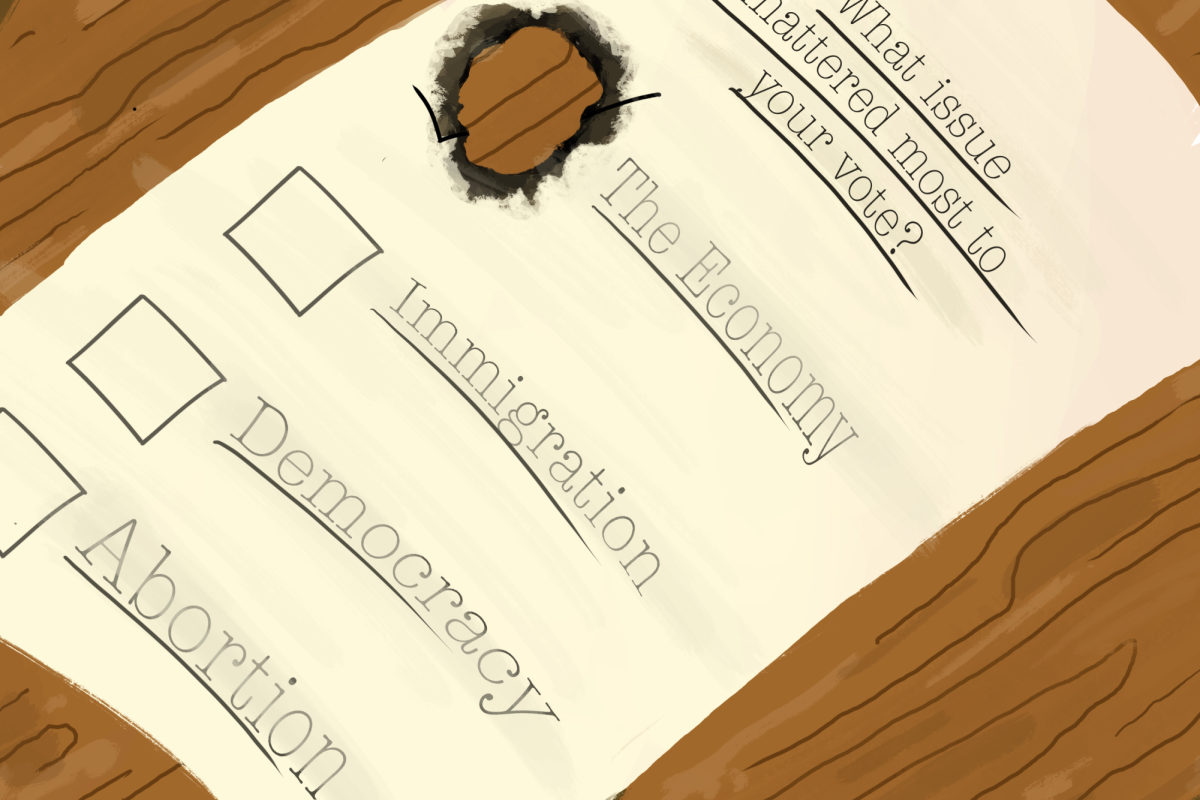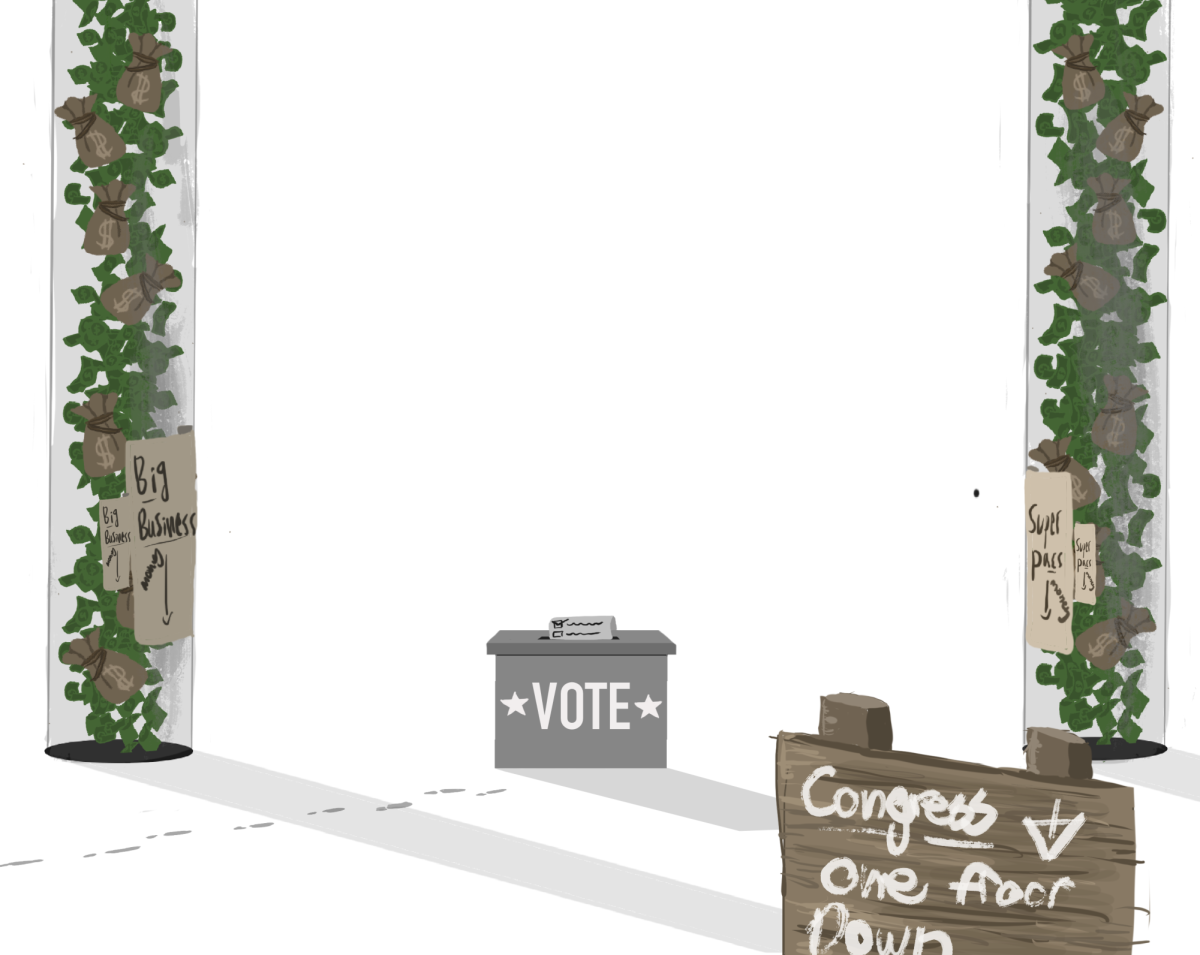Late on Nov. 5, news alert after news alert was announcing that swing-state after swing-state had been called for Donald Trump. And according to all the professional-looking men and women sitting behind their news-desks and speaking in their news-cadence, it was largely because of the economy.
Which was, in fact, a fair assessment, at least based on the exit polls.
But what did “the economy” mean?
Like “terrorist” or “communist,” it doesn’t mean anything in modern America. Or rather, it means everything — whatever the person using it wants it to mean. And that is a problem. Because it is normally the deciding issue of our elections, not to mention lives. So being able to have a discussion about it is pretty important.
When pundits or people say “the economy,” they mean how fiscally livable the United States is for its citizens.
But specifically? Inflation? Unemployment? Wages? Some combination of other things with these things?
None of those really narrow it down much.
And that’s because most of the disagreement over “how the economy is doing” happens right around the time statistics start being thrown about. The disagreement is mostly about which statistics actually matter, and which statistics tell the story that the speaker wants to be told.
So the partisans for each side say the economy is doing bad whenever the other color is in power. Red says that Blue’s economy is bad and vice versa. And normally, in their diatribes, they cherrypick statistics depending on who is in power, redefining “the economy” to suit their narrative.
I’m not saying that just because someone is a partisan that means they were wrong about whatever point they were making when the other guy’s horse was ahead.
But what we should not do under any circumstances — and what partisan debates often fall into — is treat the economy like one unified, knowable thing.
Because it is not.
That’s the problem with saying “the economy.” It makes it one single thing that is a policy issue unto itself.
Beyond disagreement over what it is, this overgeneralization — treating the economy like one separate policy box to be ticked alongside gun rights, climate change, etc. — only distorts the economy’s connections to every other aspect of our lives and politics.
The economy is not separated from the other policy issues of our time — or from politics. It cannot be. And while people intuitively seem to understand that on an individual level, it does not come through in voting trends, conversation, or what is shown on the news.
All of the various aspects of “the economy” are inseparably connected, both to themselves and to the outcomes of policy and social matters.
Ideology dicates how our economy functions, and our economy dictates our ideology.
The pressing social or “culture war” issues of our time are dictated, influenced, and utilized in relation to who is doing well fiscally, and that is tied to the performance of every other aspect of what someone could mean when they say “economy” — be that debt, inflation, trade deficits, unemployment, or Gross Domestic Product (GDP).
GDP is a representation of the larger problem.
It, like the term now oft repeated, is used as a signifier of everything from growth, to the health of a nation, to its wealth and standard of living.
But in reality it does not measure that breadth of things that it claims to.
If I am being charitable, it measures how much money is being shuffled out of, into, and within a nation; if I am being uncharitable, then it measures how well the rich are doing at getting even more fabulously wealthy.
To take a classic example — if your house burned down, that would be good for the GDP. Because you would be buying more of the finished products — a new house, a new car, new clothes, a new life, etc. — GDP would increase, even if for you in essentially every way, it’s a massive loss.
Or on a systemic level, a free, more efficient healthcare system would be bad for GDP, because people would not be paying for all their healthcare and thus shuffling more money around.
This all makes it a very poor general indicator for how an economy is doing — or at least how well the citizens of the country are doing, and their quality of life.
The problems in our general discussion do not precisely translate to GDP, but it serves as an illustration of the problems that oversimplification, and a focus on the wrong things, encourages: a separation of economics and discussion of our “economy” from politics and other social issues, submerging their connection.
This means that a trend, a datapoint, an issue, or the reason why any given group has a certain stance toward an issue can be couched however the commentator wants it to be, often in terms of “culture war” issues or blaming a minority for the problem. Instead of it being widely understood how the economy actually pertains and is driven by our material reality and the American people’s wellbeing, or how economics make it profitable for one group or another to take a stand on an issue beyond the culture war, those connections are overgeneralized and submerged into oblivion.
This makes it much easier for the monetary motivations driving partisan fighting to be cloaked behind the veil of the culture war instead of the economic realities which often drive them.
The problem is that the way we discuss it implicitly makes it all the easier for oligarchs and commentators to create scapegoats for the American people’s suffering, while robbing them all blind.
We need to understand — or at least try to understand — how “the economy” influences every issue, and how our material reality and the material interests of groups drive ideology and action surrounding it. We need to create a more nuanced discussion that does not cater to the interests of the wealthy, and where we recognize that “the economy” is not a monolith, or a distinct box to be checked, or a nebulous thing whose meaning changes with every pundit.
Instead, it’s something that informs every issue and every action.










Chris Babinec • Apr 3, 2025 at 8:41 am
Yes, we need more accuracy, detail, and to trust that readers want and need to know specifics and context.
Tangentially, this reminds me of the year in the run-up to the election when it seemed many, if not ever news outlet kept stating, “Voters trust Trump more with the economy” and would cite some poll. The drumbeat of the press reporting that over and over again as if it was a fact, without context, must have had an impact on how people voted. To what degree, we may never know.